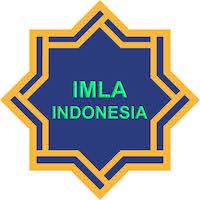The Effect of The Sequential Whispering Game on Listening Skill Teaching for Islamic Junior High School Students in Indonesia/أثر لعبة الهمس المتسلسل على تعليم مهارة الاستماع لدى طلاب المدرسة المتوسطة الإسلامية بتانجيرانج الجنوبية
DOI:
https://doi.org/10.18592/jams.v9i2.7345Keywords:
Learning Listening Skills, Language Games, Whispering ChainsAbstract
The researcher chose this title because of problems in listening skills learning activities, such as students have not been able to receive information or messages contained from a speaker, which is caused by a lack of vocabulary,their inability to differentiate short and long sounds of letters in pairs.In addition, the students lack interest in learning, and the teacher chooses media and methods unsuitable for listening learning activities. This study aims to analyze the application of chain whispering games in teaching listening, analyze the effect of chain whispering on students' learning outcomes, and reveal the supporting and inhibiting factors in teaching this game. This quantitative research uses an experimental (pre-experimental) method with a one-group pretest-posttest design. The population in this study were students of class VIII at MTs Serpong, and researchers took research samples of 33 students in class VIII. Researchers used data collecting methods: pre- and post-tests, observation, interviews, and questionnaires. After the researcher gave the pretest and posttest to students, this study obtained an average pretest score of 53.48 and an average posttest score of 79.10, with the results of the effectiveness of the N-Gain pretest and posttest of language games on students' listening skills was 54.0 with the category enough. After the calculation, the table value is obtained at the 5% level, which is 0.943, and shows that the Zero Hypothesis ( 16HO" style="width: 15pt; height: 15pt;"> ) and the Alternative Hypothesis ( 16Ha" style="width: 15pt; height: 15pt;"> ) are accepted. It shows a significant effect between the series of whispering games on listening skills learning and student learning outcomes. Keywords: Learning Listening Skills, Language Games, Whispering ChainsReferences
. "Peranan Permainan Bahasa Dalam Proses Kegiatan Belajar Mengajar Mata Pelajaran Bahasa Arab", Jurnal An-Nabighoh, 19(2).
Fathoni, Muhammad. (2018). "Pembelajaran Maharah Istima’", Jurnal Komunikasi dan Pendidikan Islam, 1(1), 200.
Handayani, Eka Utari. (2019). "Eksperimentasi Permainan Bisik Berantai Dalam Meningkatkan Maharah Istima Dan Kaloam Siswa Kelas VIII Mts Nurul Ummah Kotagede Yogyakarta", Jurnal Edulab, 4(1), 4.
Handayani, Eka Utari., dan Nurul Huda. (2019). "Eksperimentasi Permainan Bisik Berantai Dalam Meningkatkan Maharah Istima dan Kalam Siswa Kelas VIII Mts Nurul Ummah Kotagede Yogyakarta", Edulab: Jurnal Majalah Ilmiah Labolatorium Pendidikan, 4(1), 4.
Hanifah, Rif’ati. (2020). “Pengaruh Keterampilan Guru Dalam Pengelolaan Kelas Terhadap Keaktifan Belajar Siswa Pada Mata Pelajaran Aqidah Akhlak Di MTSN 25 Jakarta”, Thesis, UIN Syarif Hidayatullah Jakarta, 86.
Hestiningsih. (2018). "Rancang Bangun Game Pembelajaran Bahasa Arab (ALADIN) Arabic Learning by Exploring) Dengan Konsep Petualangan Berbasis Android", Jurnal Orbith, 14(3), h.139.
Juangsih, Juju. (2017). "Faktor – Faktor Yang Mempengaruhi Keterampilan Menyimak Bahasa Jepang dan Pengajarannya", Jurnal Wahana Didaktika, 15(2), 14-16.
Masrupi. (2019). “Peningkatan Kemampuan Menyimak Dengan Metode Intergratif Pembelajaran Bahasa Indonesia”, Jurnal Membaca, 4(1), 30-31.
Nasution, Mardiah Kalsum. (2017). “Penggunaan Metode Pembelajaran Dalam Peningkatan Hasil Belajar Siswa”, Studia Didaktika: Jurnal Ilmiah Bidang Pendidikan, 11(1), 10.
Ni’mah, Khoirotun. (2020). “Poblematika Guru Dalam Mengajar Bahasa Arab”, Prosiding Konasbara, 602.
Novita, Lina., Elly Sukmanasa, Mahesa Yudistira Pratama. (2019). "Penggunaan Media Pembelajaran Video Terhadap Hasil Belajar Siswa SD", Indonesian Journal of Primary Education, 3(2), 68.
Prihatin, Yulianah. (2017). “Problematika Keterampilan Menyimak dalam Pembelajaran Bahasa Indonesia”, Jurnal Sastranesia, 5(3), 47.
Putri, Delia. (2018). "Penerapan Metode Game “Bisik Berantai” dalam Meningkatkan Keterampilan Menyimak Pada Siswa Sekolah Dasar", Indonesian Journal of Basic Education, 1(2), 216.
Putri, Mutiara Ernanda., Nurmaniah. (2021). “Pengaruh Bermain Pesan Berantai Terhadap Keterampilan Menyimak Anak Usia 5-6 Tahun di PAUD Salsabila Kecamatan Medan Marelan”, Jurnal Bunga Rampai Usia Emas, 7(1), 39.
Ramdhani, Eka Putri., Fitrah Khoirunnisa, dan Nur Asti Nadiah Siregar. (2020). “Efektivitas Modul Elektronik Terintegrasi Multiple Representation Pada Materi Ikatan Kimia”, Journal of Research and Technology, 6(1), 165.
Tatang, Yaris Eka Rachman., dan Shofa Musthofa Khalid. (2021). “Faktor-Faktor Penghambat Dalam Memahami Bahasa Arab”, Jurnal El – Ibtikar, 10(1), 42.
Umiani. (2021). “Faktor Penghambat Pembelajaran Bahasa Arab Di MTSN 5 Bireun”, At-Tarbiyyah, 1(1), 146.
Widodo, Arif., dkk. (2021). "Thatbiiq Ta’liim Mahaaratu Al-Kalaam Fii Al-Madrasah Al-Mutawasithah Manbaul Ihsaan", Kilmstuna: Journal of Arabic Education, 1(1), 2.
Yuwono, Sugeng Lukito. (2020). Asyiknya Mengajarkan Sains Di Kelasku (Berbagi Pengalaman Mengajar). Bandung: Tata Akbar, 56.
الاستقامة، حيمة. وزيا حنينة الهداية. (2020). "تطبيق اللعبتين "همس الفعل" و "العدّ والتصفيق" في المدرسة المتوسطة الحكومية فلوس غرضفا بايووانجي، المعيار، 3(1)، 79.
الزعبي، بشير راشد. (2009). مهارات الإستيعاب لدى طلبة اللغة العربية الناطقين بغيرها. عمان: دار البداية، 2009، 16.
العالية، غالي. (2019). "الوسائل التعليمية ودورها في تعليم اللغة العربية للناطقين بغيرها"، مجلة علوم اللغة العربية وآدابها، 11(2)، 166.
عبد العزيز، ناصف مصطفى. (1983). الألعاب اللغوية في تعليم اللغات الأجنبية. الياض: دار المريخ، 8.
ودودو، عارف. "اللعبة اللغوية النموذاجية في تعليم الكتابة"، مجلة البيان، 11(1)، 113.
Downloads
Published
Issue
Section
License
Copyright (c) 2022 Azkia Muharom Albantani, Mohd Zulfahmi Muhammad

This work is licensed under a Creative Commons Attribution 4.0 International License.
Authors who publish with this journal agree to the following terms:
- Authors retain copyright and grant the journal right of first publication with the work simultaneously licensed under a Creative Commons Attribution License that allows others to share the work with an acknowledgement of the work's authorship and initial publication in this journal.
- Authors are able to enter into separate, additional contractual arrangements for the non-exclusive distribution of the journal's published version of the work (e.g., post it to an institutional repository or publish it in a book), with an acknowledgement of its initial publication in this journal.
- Authors are permitted and encouraged to post their work online (e.g., in institutional repositories or on their website) after the submission process, as it can lead to productive exchanges, as well as earlier and greater citation of published work.






